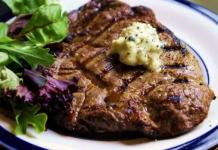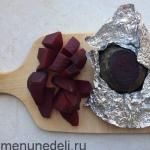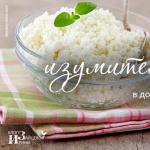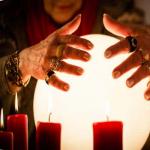The survey was conducted on June 23–27, 2016, using a representative all-Russian sample of the urban and rural population among 1,600 people aged 18 years and older in 137 settlements in 48 regions of the country. The study is conducted at the respondent's home using personal interviews. The distribution of answers is given as a percentage of the total number of respondents.
Statistical sampling error 1600 people(with probability 0.95) does not exceed:
3.4% for rates close to 50%
2.9% for rates close to 25%
2.0% for rates close to 10%
1.5% for indicators close to 5%
WHICH OF THE FOLLOWING STATEMENTS MOST ACCURATELY REFLECT YOUR INTENTION TO VOTE IN THE UPCOMING ELECTIONS TO THE STATE DUMA OF RUSSIA? (one answer)
|
Sep. |
Sep. |
Sep. |
Sep. |
Sep. |
Jan. |
Feb. |
March |
Apr. |
May |
Jun. 16 |
|
| I am sure that I will not vote in the State Duma elections | 25 | 19 | 16 | 19 | 11 | 11 | 12 | 13 | 14 | 14 | 15 |
| I doubt I'll vote | 13 | 12 | 12 | 14 | 12 | 10 | 12 | 11 | 10 | 12 | 13 |
| I don't know whether I'll vote or not | 17 | 12 | 14 | 15 | 17 | 24 | 20 | 22 | 25 | 26 | 20 |
| Most likely, I will vote in the State Duma elections | 18 | 16 | 22 | 28 | 32 | 30 | 30 | 32 | 26 | 25 | 27 |
| Absolutely, I will vote in these elections (of course, unless nothing happens to me before that moment) | 24 | 37 | 33 | 20 | 24 | 21 | 21 | 19 | 21 | 19 | 21 |
| Difficult to answer | 3 | 3 | 3 | 4 | 4 | 5 | 5 | 3 | 5 | 5 | 4 |
(one answer; closed question; % of ALL SURVEY PARTICIPANTS)
| Jan.16 | Feb.16 | Mar.16 | Apr.16 | May.16 | Jun.16 | |
| United Russia (D. Medvedev) | 39 | 40 | 40 | 42 | 35 | 35 |
| 10 | 10 | 13 | 10 | 14 | 11 | |
| 5 | 6 | 6 | 7 | 9 | 9 | |
| 3 | 3 | 3 | 3 | 2 | 3 | |
| – | – | <1 | 1 | 1 | 1 | |
| 1 | <1 | 1 | 1 | <1 | 1 | |
| Civil force (K. Bykanin) | – | – | – | – | 1 | 1 |
| Homeland (A. Zhuravlev) | <1 | 1 | 1 | 1 | <1 | <1 |
| Apple (E. Slabunova) | <1 | <1 | <1 | <1 | <1 | <1 |
| PARNAS (M. Kasyanov) | <1 | <1 | <1 | <1 | <1 | <1 |
| Party of Growth (B. Titov) | – | – | <1 | <1 | <1 | <1 |
| – | – | – | – | <1 | <1 | |
| Patriots of Russia (G. Semigin) | <1 | <1 | <1 | <1 | <1 | <1 |
| – | – | – | – | <1 | <1 | |
| Other | 2 | 1 | 1 | 2 | 1 | <1 |
| – | 1 | 1 | 2 | 1 | 2 | |
| No, I don’t know which party I would vote for | – | 10 | 11 | 8 | 11 | 11 |
| I wouldn't vote | 19 | 16 | 12 | 10 | 12 | 14 |
| No, I don’t know if I would vote or not | – | 11 | 10 | 12 | 12 | 11 |
| Difficult to answer | 22 | – | – | – | – | – |
IF THE STATE DUMA ELECTIONS WERE HELD THIS SUNDAY, WOULD YOU TAKE PART IN THESE ELECTIONS, AND IF SO, WHICH PARTY WOULD YOU VOTE FOR? (one answer; closed question; in %% of those respondents WHO ARE READY TO VOTE IN THIS ELECTION AND HAVE DECIDED ON THE PARTY)
| Jan.16 | Feb.16 | Mar.16 | Apr.16 | May.16 | Jun.16 | |
| United Russia (D. Medvedev) | 65 | 64 | 59 | 60 | 53 | 55 |
| Communist Party (CPRF) (G. Zyuganov) | 16 | 17 | 19 | 15 | 21 | 18 |
| Liberal Democratic Party of Russia (LDPR) (V. Zhirinovsky) | 8 | 10 | 10 | 10 | 14 | 14 |
| A Just Russia (S. Mironov) | 5 | 4 | 5 | 5 | 4 | 5 |
| Communists of Russia (M. Suraikin) | – | – | 1 | 2 | 1 | 1 |
| Civil platform (R. Shaikhutdinov) | 1 | <1 | 1 | 1 | <1 | 1 |
| Civil force (K. Bykanin) | – | – | – | – | 1 | 1 |
| Homeland (A. Zhuravlev) | 1 | 1 | 1 | 1 | <1 | 1 |
| Apple (E. Slabunova) | 1 | <1 | <1 | <1 | <1 | 1 |
| PARNAS (M. Kasyanov) | 2 | 1 | 1 | 1 | 1 | 1 |
| Party of Growth (B. Titov) | – | – | <1 | <1 | <1 | <1 |
| Russian Party of Pensioners for Justice (E. Artyukh) | – | – | – | – | <1 | <1 |
| Patriots of Russia (G. Semigin) | 1 | <1 | <1 | <1 | 1 | <1 |
| Russian environmental party “Greens” (A. Panfilov) | – | – | – | – | <1 | <1 |
| Other | 2 | 2 | 1 | 1 | 1 | <1 |
| She would have ruined/taken away the ballot | – | 2 | 2 | 3 | 2 | 3 |
Pre-election congresses were held in the country, and the election campaign began. Well, the FBK sociological service decided to do the first survey of this political season with party ratings.
You yourself would like to know with what numbers this campaign begins, and you will probably be interested in unbiased sociology.
Not to say that everyone is in great excitement about the upcoming elections, although 56% of citizens know for sure that there will be elections to the State Duma in the fall:
Many opinion polls traditionally show high turnout and this one was no exception. In 2011, the official turnout was about 60%, but the real turnout, cleared of falsehoods, was probably around 50%.


Almost half of voters have not decided who they will vote for. These “undecided” votes will be distributed among the parties, and in the end, not necessarily in the same proportion as the votes of those voters who already confidently declare their support for one or another party. The practice of past years shows that the result of United Russia falls closer to the elections.
Overall, the results of our poll were quite close to the results of the latest Levada Center poll, except that they predicted very low turnout.
If you adjust for the difference in turnout, then all the interesting things are the same:
The LDPR is challenging the communists for second place;
SR is balancing on the verge of passing the barrier;
Non-parliamentary parties are not even close to becoming parliamentary.
However, our survey was still on the eve of the congresses. Now we want to conduct another one and examine party ratings more carefully, taking into account clarity about who is participating in the lists. Find out who people generally know among those who lead their parties.
Therefore, we are recruiting volunteers to help us with this survey. As usual: we are responsible for training and strict adherence to the most advanced sociological methods, and you are responsible for conscientious work under the supervision of experienced people.
Come, help us provide citizens with the necessary sociological data and see for yourself that ours is the most honest.
A week before the elections, VTsIOM gave second place to the LDPR. The gap with the Communist Party of the Russian Federation has increased compared to previous polls and is 5%. With such polls, sociologists put psychological pressure on voters, the expert believes
Leader of the LDPR party Vladimir Zhirinovsky (Photo: Sergey Fadeichev/TASS)
Strengthening before elections
The LDPR secured second position in the pre-election rankings, increasing its lead from the third-placed Communist Party of the Russian Federation on Monday. This is the last day when sociological services can publish measurements of public opinion before the State Duma elections.
According to a VTsIOM survey conducted on September 10-11 (combined data from residential and CATI surveys, sample size: 3,200 people), the LDPR rating is 12.6% (of all respondents). At the beginning of September, 2% fewer respondents were ready to vote for the LDPR. This is the party's highest figure since the start of the election campaign (in June it gained 10.3%).
The Communist Party of the Russian Federation ranks third with a result of 7.4%, although on September 3-4, 8.7% of Russians were ready to vote for the Communists. On the eve of the elections, VTsIOM published the lowest result of the Communists since the beginning of the campaign.
“An important trend in recent weeks is the strengthening of the LDPR, which is increasingly claiming second place,” comments VTsIOM General Director Valery Fedorov in a press release. According to him, the Communist Party's campaign does not lead to an increase in the party's ratings, but the base electorate of the Communist Party is sufficiently mobilized.
United Russia has strengthened its position at the finish line and is “confidently leading in the election race” (41.1%), the press release says. In the previous survey, United Russia members received 2% less - only 39.3%.
The rating of the party in power decreased in three months from 45 to 41% of the vote, recalls Fedorov. “In recent days, the downward trend has stopped and the rating has grown again, probably due to the party’s effective emphasis on its connection with the president,” believes the head of VTsIOM.
A Just Russia also has a chance of retaining its faction in the new State Duma, sociologists note. According to VTsIOM, support for the party increased over the week from 5.3 to 6.3%. In general, the rating of the Social Revolutionaries is unstable, Fedorov notes.
The LDPR Public Opinion Foundation: according to its data as of September 4, 11% of respondents are ready to vote for the LDPR, while 9% are ready to vote for the Communist Party of the Russian Federation.
According to the latest Levada Center poll conducted at the end of August, the Communist Party of the Russian Federation held second place with 15%, ahead of the Liberal Democratic Party by 1%. Since June, the LDPR has not overtaken the communists, the Levada Center recorded.
Convenient party
RBC's interlocutors in the Kremlin have been increasing the LDPR's ratings in recent months. True, they assumed that on election day the elderly electorate of the Communist Party of the Russian Federation would demonstrate greater discipline and mobilization than the young electorate of the Liberal Democratic Party, and as a result, the communists would still take second place.
Last Thursday, First Deputy Head of the Presidential Administration Vyacheslav Volodin said at a meeting with leading political scientists that the LDPR is becoming the “party of second choice” and, under certain conditions, can overtake the Communist Party of the Russian Federation. He attributed this to the fact that party leader Vladimir Zhirinovsky seriously changed his approach to campaigning. “The shockingness and conflicts are gone, but he is on the state’s agenda,” noted a Kremlin official.
The experts participating in the event agreed with the Kremlin official, but also presented their own arguments. President of the Center for Political Technologies Igor Bunin explained the trend by saying that some liberal-minded voters do not want to go against the authorities and public opinion, so they choose the LDPR as an alternative to European-oriented parties. Evgeny Minchenko, head of Minchenko Consulting, spoke about the strengthening of nationalism throughout the world, and hence the growth in the ratings of the LDPR, he insisted.
The point is rather about the loss of positions by the communists, who for a long time gained points through the “opposition version of patriotism,” noted Alexey Zudin, a member of the expert council of the ISEPI Foundation. After the annexation of Crimea, the communist version of patriotism became devalued, the expert noted. The patriotic agenda, which was previously monopolized by the Communist Party of the Russian Federation, has now moved to United Russia, the Liberal Democratic Party and other parties, Volodin agreed.
Russian sociology exerts psychological pressure on voters, says political scientist Alexander Kynev. “The authorities would really like the LDPR to take second place, because this party is more convenient and comfortable for the authorities,” Kynev believes. According to him, during the campaign the share of undecided people grew. “The total votes of those who have decided are falling, and for everyone, including the Liberal Democratic Party. And those who are undecided can rush anywhere in the elections. And sociologists distribute the share of undecideds evenly between parties,” says the expert.
The LDPR showed its best result in the elections of the State Duma of the first convocation in 1993 - 22.92% of the vote. The party doubled its performance in the elections of the Duma of the second convocation (1995), receiving 11.18%. Four years later, in 1999, the Zhirinovsky Bloc gained only 5.98%. In the elections of the Duma of the fourth convocation in 2003, the LDPR returned to its previous result - 11.45%. Four years later the party received 8.14%. In the last Duma elections in 2011, 11.67% of Russians voted for the LDPR.
Which parties are making it to the State Duma according to the latest data from sociologists?
A week before the elections, sociological services predict that four parties will overcome the 5% barrier. The voting results may be unexpected, since a sixth of voters still have not made their choice
Monday, September 12th is the last day sociological services may publishpublic opinion measurements before the State Duma elections. The law prohibits the publication of the results of public opinion polls and forecasts of election results within five days before voting day (September 18), as well as on voting day.
Undecided Party
The latest data published by the All-Russian Center for the Study of Public Opinion (VTsIOM) and the Levada Center show that four parties overcome the five percent barrier to enter the Duma: United Russia, the Communist Party of the Russian Federation, the Liberal Democratic Party and A Just Russia. According to the Public Opinion Foundation (FOM), only three parties will overcome this barrier: only 4% of those surveyed by FOM are ready to vote for A Just Russia. 1% of respondents each expressed their readiness to vote for all other parties, including Yabloko, the Party of Growth, and PARNAS.
According to FOM, 44% will definitely take part in the elections, another 30% are inclined to be ready to vote (the last survey was conducted on September 3-4, 3,000 respondents were surveyed in 73 constituent entities of the Russian Federation). Data from the Levada Center (the latest published survey from August 26-29 in 48 regions, 1,600 people surveyed) shows less enthusiasm among voters: 20% say they will definitely go to vote, another 28% are inclined to vote.
During the election campaign, the number of those undecided in their choice increased sharply. 14.6% of VTsIOM respondents (the latest data was published on September 4, 1,600 people were surveyed in 42 regions) say that they do not know which party they will vote for. In April, only 8% of respondents could not answer the question about electoral preferences. At FOM, 16% of respondents had difficulty making a choice, compared to 11% in April. These are the highest levels of voter uncertainty since 2011.
Party with the President
The United Russia rating has shown strong fluctuations in the last week. According to FOM, the share of Russians ready to vote for United Russia is 41%. On August 28, FOM reported that 44% of Russians surveyed declared support for the party in power. Since January 2016, the party’s rating in FOM data has decreased by 9%. The number of Russians who certainly do not trust United Russia has increased by 2% (from 12 to 14%) and have a negative assessment of the party’s activities (from 25 to 27%). Rural residents and citizens without income have the most positive attitude towards United Russia members, as follows from the survey data.
According to VTsIOM , 39.3% are ready to vote for the party in power. In mid-August about the desire to cast a vote United Russia said 44% of Russians, in April there were 47.6% of them. A sharp drop in the rating of United Russia in early September Levada Center. The number of citizens ready to vote for the party in power in the State Duma elections decreased in August from 39 to 31% of respondents, sociologists reported.
United Russia's rating is not decreasing; it behaves differently in different regions, First Deputy Head of the Presidential Administration Vyacheslav Volodin (heads the regional group of United Russia members) commented last week at a meeting with political scientists. The trend is “multi-directional,” he assured. “In a number of territories it [the trend] is flat, in a number of territories, including St. Petersburg, it is decreasing, in some territories, including Moscow, it is increasing,” classified Volodin. The decline is occurring in those regions where United Russia did not nominate its candidates in single-mandate constituencies, conceding them to the opposition, a Kremlin official. A week before the Duma elections United Russia decided to launch the latest wave of campaigning, in which they will try to combine the president’s rating with the party’s rating, . And on September 10, a week before the elections, President Vladimir Putin and Prime Minister and leader of the United Russia list Dmitry Medvedev together looked at an Orthodox church, took a boat ride on Lake Ilmen and talked with fishermen.
President Vladimir Putin's rating is unshakable - 82% in August (Levada Center, in June-July - 81-82%). VTsIOM shows a decrease in the rating of trust in the president: 50.2% of respondents said they trust, compared to 56% in early August. Support for the prime minister, according to the Levada Center, has decreased - from 55% in July to 48% in August. VTsIOM, on the contrary, shows an increase in trust in the prime minister: 9.3% of those who trust in September versus 10.1% in early August.
Stability
The ratings of other parties show lesser dynamics. According to FOM, the number of people wishing to vote for the Liberal Democratic Party remained the same - 11%, the Communist Party of the Russian Federation gained 1% during this time (up to 9%), A Just Russia lost 1% (up to 4%). The number of those who decided not to go to the polls decreased from 14 to 13%. VTsIOM data show a slight increase in the rating of communists: to 8.7% from 7.7% (at the beginning of the year there were 10% ready to vote for the Communist Party of the Russian Federation). The LDPR's rating fell from 12.2 to 10.4%; 5.3% of respondents were ready to vote for A Just Russia (at the beginning of the year there were 5.6%; the peak of sympathy for the Socialist-Revolutionaries came in July, when they were ready to vote for the party give a vote to 7.9% of respondents). The Levada Center showed a stable rating for the Communist Party of the Russian Federation and the Liberal Democratic Party, but the latest survey data demonstrated the passage of the five percent barrier for the first time.
The current data from sociologists is closer to reality than the forecasts before the last Duma elections, says political scientist Alexei Makarkin. “Those elections were scandalous, there were many questions about them. Now everything is being done to avoid scandals. However, sociology cannot cover everything - the week before the elections will be decisive,” the expert says. According to Makarkin, the situation can be changed by the fact that a considerable part of the population makes decisions only at polling stations. In addition, sociologists have recorded an increase in the recognition of small parties. “We still have to find out who will be able to attract undecided voters,” the political scientist concludes.
Putin's United Russia party will have to fight in the State Duma elections in a couple of weeks, according to the latest opinion polls from the independent Levada Center. The business publication Vedomosti writes that the share of voters ready to vote for United Russia fell from 39% to 31%.
Among those who have already decided exactly who they will vote for, the number of United Russia supporters decreased from 57% to 50%. But Vladimir Putin's widespread popularity has remained unchanged: 82% of Russian voters support the president.
Context
The asymmetry of Putin's power
Asahi Shimbun 09/01/2016Elections as a stress test for the Kremlin
Dagens Nyheter 08/31/2016Putin plays the international card
Les Echos 08/23/2016The explanation is that Russians do not associate Putin with United Russia, but rather Prime Minister Dmitry Medvedev, according to Russian analysts. Today, less than half of voters approve of the work of Medvedev, who heads the United Russia list.
“There is now an information campaign against Medvedev. And the decrease in support for United Russia was also expected from the very beginning of the election campaign. After all, citizens are reminded that there are other parties,” political scientist Alexander Pozhalov, director of the Institute of Socio-Economic and Political Research in Moscow, explained to Vedomosti.
Dmitry Medvedev began to be widely ridiculed on the Internet when, at a meeting with pensioners, he announced that the government does not plan to increase pension payments. “There is no money, but you hold on,” Medvedev said, trying to cheer up the pensioners. The phrase went viral and became the nail in the coffin of the prime minister's reputation.
United Russia is trying in every possible way to take advantage of Putin’s popularity. A considerable part of the party’s election advertising is based on repeating well-known Putin quotes, although formally the president is not even a member of the party.
At the same time, United Russia puts a spoke in the wheels of the opposition party Yabloko. For example, in Petrozavodsk, Yabloko was banned from participating in local elections, which will be held simultaneously with the State Duma elections. This happened when the Rodina party held Yabloko accountable for legal errors allegedly committed during the candidate nomination process. There are many hints that the Kremlin is behind this: Yabloko enjoys significant support in the Petrozavodsk region, and Rodina is a party loyal to the regime.


















